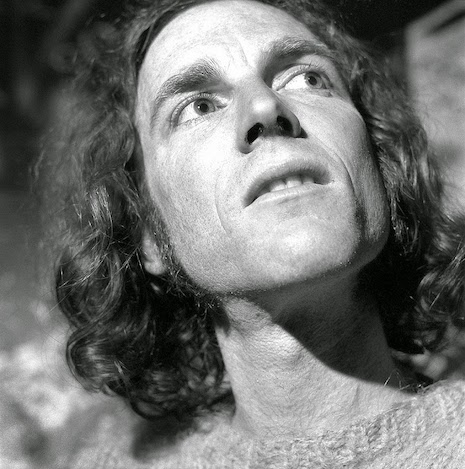
Chris Cutler in Toronto, 1987 (via some old pictures I took)
The English percussionist Chris Cutler has been a member of Henry Cow, Pere Ubu, and Art Bears, to name just a few of his bands. He played on the Residents’ Eskimo and Commercial Album, founded Recommended Records (now better known as ReR Megacorp), and pioneered the use of electrified drums.
Cutler is also a scholar and theoretician of music, and his podcast Probes considers the present state of the art in relation to two crises, one having to do with the collapse of tonality, the other with the mechanical reproduction of sound. If that makes it sound boring, understand that Probes really amounts to a free college course in music appreciation and history. Broadcast by Ràdio Web MACBA, the online radio station of the Barcelona Museum of Contemporary Art, Probes illustrates Cutler’s lucid analysis with excerpts of records from his wide-ranging collection. Each episode is accompanied by a transcript and another PDF with the episode’s playlist and, when relevant, bibliography. This month’s episode “traces the immense impact Indian instruments and aesthetics had on both thinking and playing, across all forms of western music from Messiaen and La Monte Young to John Coltrane and the Beatles.”
Here’s Cutler introducing the series at the beginning of the first episode:
If you had asked anyone in the eighteenth century what music was, you would have met with broad consensus; music came in three basic forms then – as it had for at least six hundred years: church music, art music, and what we now call folk music – all three of them pretty closely integrated, with many of the same melodies migrating back and forth between them.
If you asked the same question today you’d be met with a tortuous attempt at an abstract definition, which would still fail to contain the vast mass of activities – and the diverse aesthetics – now aimed at our ears. Indeed, claims for music today have expanded to include not only anything that you can hear, but kinds of silence too.
Should we take this to imply that a once integrated culture is slowly degenerating into a chaotic and unregulated marketplace? That would certainly be the political reading. But actually I think something more interesting is going on, something quite unusual. What we are living through is a paradigm change. We just can’t see it because life is too short and such events normally take centuries to work through.
But here’s the argument: for the last hundred and twenty years or so, music and musicians, at least in the industrialised world, have been struggling to come to terms with two catastrophic and destabilising upheavals. The first is the collapse of tonality, which principally affects formal composition and art music; the second the brute fact of sound recording – which has so far utterly transformed everything it has touched.
To find an historical precedent for this, we would need to go back at least 700 years – to the last time European music had to deal with the emergence of a new memory technology. Then it was writing; today it is sound recording.
Memory has this power because it stands at the root of all systems of conscious communication. Without memory, music could not be produced or reproduced, circulated or understood. And different forms of memory will engender different forms of music – that is the underlying thesis of this series.
Find Probes here. Below, Cutler talks about working with the Residents in a clip from Theory of Obscurity.
H/T LeRoy Stevens